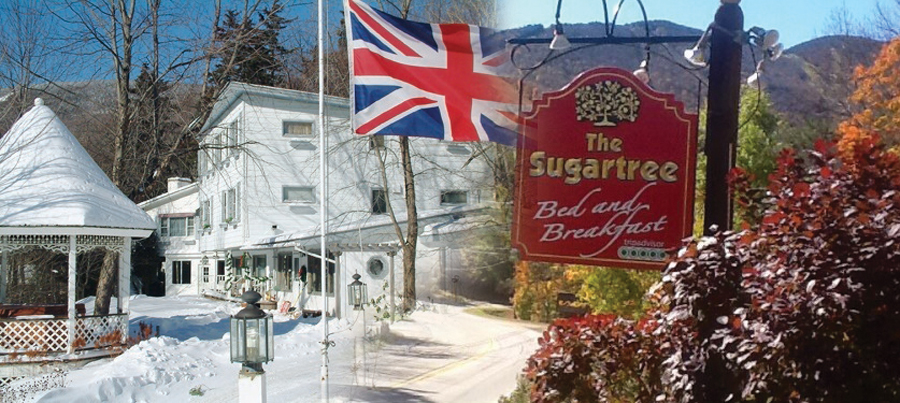Sugarbush president and CEO Win Smith is supportive of local efforts to address The Valley’s lack of workforce housing, but his need for seasonal staff for the 2018-19 ski season means he’s got to move forward with his own solutions.
And he has.
Sugarbush closed this week on the Sugartree Inn, kitty-corner across the street from the resort’s administrative building in Warren. That 10-room inn also has a two-bedroom apartment as well as two kitchens. Smith anticipates that it will be able to house some 25 employees.
Over the last few years, Sugarbush has secured employee housing in a variety of locations in The Valley. Sugarbush rents rooms at the Christmas Tree Inn for about 30 employees and rents a property on Route 17 known as the Pindari House where another 30 employees are housed. There’s an annex at the Sugarbush Inn that houses four more employees and the residence on the former Sam Rupert’s/Warren House site houses another 10 employees.
“We work with two other homeowners, renting space for about 10 more employees, and rent another four to five apartments in the Brook building above Chez Henri. Each sleeps four to six people,” Smith said.
And beyond that, Sugarbush has placed many employees in local homes and spare rooms through its Tenants for Turns program that incentivizes homeowners to provide a reasonably priced room for Sugarbush employees.
Extending its business model and hiring practices into seasonal housing was made a bit easier by the resort’s pre-existing hospitality business, Smith said. But it’s a complex process juggling all the various properties. Each property has an equivalent of a college dorm residential adviser (RA) and there are very specific rules about prohibiting smoking and other rules designed to make communal living easier.
For employees living on Sugarbush Access Road, walking to work is possible and the Mad Bus offers regular trips. Sugarbush has purchased a van and uses it to transport workers from Route 17 and other locations, dove-tailing those trips with the Mad Bus routes and schedule.
Employees pay weekly for their accommodations and Smith said in most cases their rents are less than $500 a month, including utilities and Wi-Fi.
“It’s probably close to break even for us, even though we have to provide transportation and we’ve had to hire a full-time person for our J1 cultural exchange program employees,” Smith said.
The J1 Visa program provides workers and is also a cultural exchange program, so those workers must be provided with cultural exploration opportunities.
“It’s what we have to do to get the labor force we need,” Smith said, noting that Sugarbush is not alone in cobbling together workforce housing. Almost all ski areas are doing this.”
In the immediate future, Sugarbush has a truckload of single and bunk beds ready to go into the Sugartree Inn. Looking further ahead, Smith said the resort had purchased the former Rosita’s building, immediately uphill from the Sugartree. That property had long been a restaurant when it closed, but a developer had subsequently secured Planned Unit Development permits to develop it into clustered housing or condominiums.
“We want to revisit those permits and get it rezoned and develop it for workforce housing. We’d like to build something that has been 60 to 80 beds and we’d use all of them in the winter. It could be made available to businesses if we had enough beds and made available at other times of the year as well,” Smith said.







